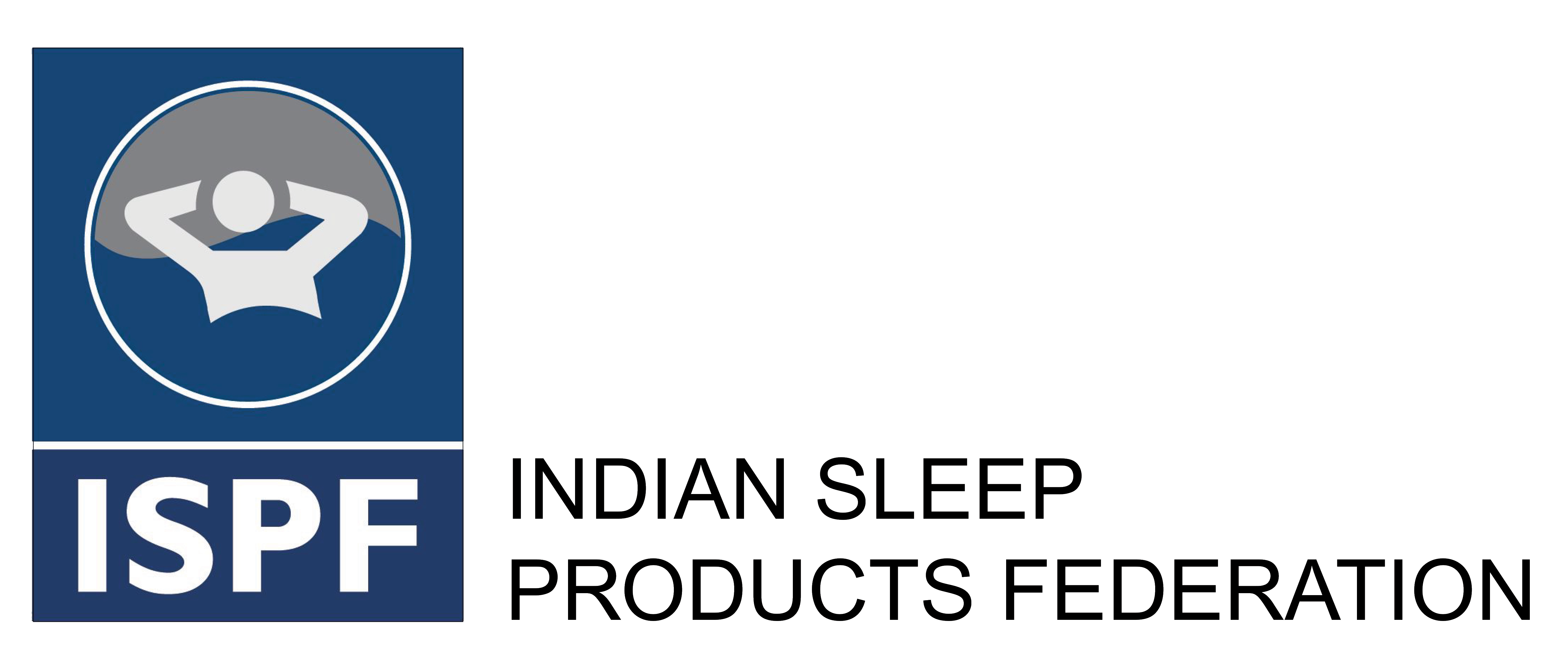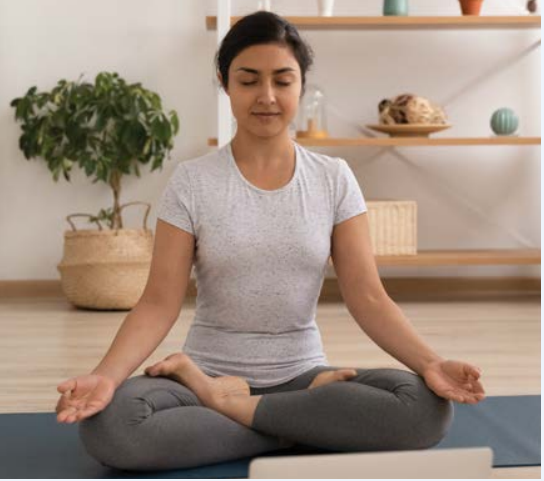Three Pillars of Health
What do you see when you see a healthy person? You don’t just see Athos. You see Porthos and Aramis too. You see someone who eats healthy, is fit in body and mind and well, has slept well. Is health just the absence of disease? Or is it a pair of well-rested eyes, a fit body and a demeanour that says s/he follows a balanced lifestyle? Turns out that Three Pillars of Health rests on the tripod of three crucial pillars. It is about the trifecta of eating right, staying fit and getting adequate sleep. If even one of these pillars gets wobbly, then the tripod starts losing its balance. That’s why no matter how much one goes to the gym or how much discipline one follows in what to eat and what not to eat, everything goes to waste if one does not get those precious hours of rest at night. No amount of vitamin intake or morning jogs will help if one has not slept well the previous day. It will show immediately and – in the face, in the work and the conversations. Yes, health is defined by equal adherence to all three tenets. Fitness and diet are crucial for a healthy body and mind; and so is adequate sleep.
This is an important characteristic that the industry should start paying attention to. Because as a mattress player, you are not just selling sleep you are addressing an important health issue. It cannot be done in ignorance of other facets that envelope it and support it.
Food – The First Pillar
People have started waking up to the crucial importance that health should be given. They are looking at food in a new way. Mangala Shenoy, a qualified dietician and nutritionist, says that food is not a mere intake of nutrients. While all living beings take food to survive, food is a force that can both nourish and destroy us. While good food nourishes us, the wrong kind of food – either in quantity or quality – leads to illness and ailments, she points out. Compared to even a few decades back, on average, issues like malnutrition, famines and starvation have come down dramatically, thanks to science and technology, which has aided things like green (agriculture) and white (milk) revolutions in the country. However, Dr Shenoy worries that it is the wrong kind of nutrition which is unhealthy which has become cheap; and, more importantly, all-pervasive and accessible, so easily.
Watch your calories
Sedentary lifestyles, combined with the intake of food containing high-calorie content, is one of the main reasons responsible for the health issues being faced by a large section of the population, asserts Dr Gopal Yadav, who is a nutrition consultant in the research wing of an FMCG major.
Pointing out that as people were stuck at home during the pandemic, they have started ingesting more amounts of food, she explains that it is either because of it being accessible all the time or because people look at it as a coping mechanism caused by other stress factors. Dr Shenoy says that this, combined with a lack of adequate exercise, due to lockdowns and irregular sleeping hours is taking a huge toll on human health.
Dr Gopal Yadav, who is a nutrition consultant in the research wing of an FMCG (Fast Moving Consumer
Healthy Eating, Physical Activity, and Sleep hygiene have the potential to become one of the most suitable interventions to reduce the risk to develop neuropsychiatric disorders, says NCBI
Goods) biscuit and bakery products’ a multi-national company, says that while processed food is cheaper, can be stored longer and is more easily available; importance should be given to the consumption of fresh food, especially vegetables and greens, and as much as possible.
Whether it is chips (as wafers are called), biscuits, muffins, cakes, bhujiyas and namkeens, cookies, cupcakes and several other ‘snacks’ which have some shelf life, most tend to use cheap palm oil, points out Dr Yadav. “This is not unique to any single company. Several of the companies that I have consulted for as a food expert, show the use of, more or less, the same ingredients.”
Science of food
Dr. Mangala Shenoy, a qualified dietician and nutritionist advocates healthy eating. “Even scientifically, the kind of food we consume have a bearing on us. The type of food consumed is a function of the region, religion and belief systems of individuals, in particular, and societies at large. The only goal should be promotion of health, even as we take into consideration things like taste. Healthy food can also be tasty if we plan it well.”
Similar approach and awareness is being invoked on other dietary habits like consumption of caffeine and tea“People have become addicted to the wrong beverages for that quick kick and the dependence of habit. It is important that we find alternatives that not only keep us stimulated but also help us alert and productive in harmless ways, while nourishing our body and mind with vital elements.” Explains Hridaya Khatri, an entrepreneur and an aspiring doctor, who has come up a venture called Tea Tantrum that uses Ayurveda based tea-bags for taking care of various health conditions. She is very proud and excited about the range of ‘Sleep-wellness’ tea that the portfolio covers.
“People who are consuming gym powders do not realize the high stimulant content that these bottles have. People who consume a lot of tea and coffee are also reluctant to accept their side effects on sleep. They make an excuse – ‘this does not affect my friend so why would it affect me’. But everyone’s genetic makeup is different. So people should start realising what their bodies tell them. No way, the answer is about a sleep shortcut.” Explained Dr. Manvir Bhatia, MD DM Neurology, Senior Neurologist & Sleep Specialist in a conversation with Comfort Times.
Incidentally, the use of herbal medicine has been showing a new spotlight. As per World Health Organization (WHO) bulletin, 80 per cent of the African population uses some form of traditional herbal medicine. As per the International Journal of Pharmacy and Pharmaceutical Sciences, 71 percent of the people indicated that they had previously used herbal medicines.
Fitness – The Second Pillar
Meet 46-year-old Vaibhav Patel a resident of Gandhinagar, Gujarat, for whom life, till recently, seemed hectic but very good. Patel, a SEBI-certified financial advisor, was a day trader, and market trainer and ran a small boutique advisory firm which made excellent profits. Despite the lockdown, or maybe because of it, he saw business and profits booming, with more clients signing on for his fee-based financial advisory services, newsletters, and webinars.
The boom in the markets meant that he also saw a significant uptick in his business. That meant Patel and his small team were working almost all seven days of the week. On weekends when markets were closed, the firm offered paid webinars and courses for newbies and clients who wanted to master, stock picking, charting, and other investment strategies.
Patel brought a new car five months ago. All this signified success. Except in March, Patel, operating from his ‘work room’ at home suddenly collapsed in front of his trading terminal. He was profusely sweating and clutching his chest, unable to breathe or even call for help. Luckily his 11-year-old young son who had ‘intruded’ into the workroom – much against instructions – saw his father fall on his keyboard and alerted family members.
Patel was rushed to a nearby hospital and because of immediate medical attention within the fabled ‘golden hour, he survived a massive heart attack. Now recuperating at home, Patel is a changed man. “In the race to make as much money as possible at the earliest, I neglected my health and almost paid a terrible price for it.”
He appreciates his ‘second birth’ and says he is never going to neglect or take his health for granted. “Now while I have resumed work, I now compulsorily do yoga early in the morning through a guided Zoom class. Weekends are reserved for family and talking to friends. The right kind of food, emphasis on fitness, and getting adequate sleep are my three mantras now,” he stresses.
Patel is not alone in realising the importance of health. As people across the world try to cope with a series of challenges which the current pandemic has induced, they are focussing on paying attention to fitness with a new degree of seriousness.
Yoga for fitness
Yoga, which originated in India and has been part of the Indian civilisation for millennia, has been a practice that aligns our mind, body and spirit and enhances mental clarity. It is an effective tool to reduce stress and improve motor functions, which, in turn, helps keep various health problems at bay. This public health crisis due to the pandemic has brought to the fore the importance of strengthening our immune systems. “For this, we need to adopt a healthy lifestyle. Studies suggest that yoga contributes to improving the immune system since it is a combination of physical
exercise, controlled breathing and mental concentration — all of which are known to have health benefits. Among the many yoga asanas, Shavasana and sasakasana reduce stress which, many practitioners believe, increases the efficiency of the immune system. Breathing techniques like pranayam improve the functioning of the respiratory system. Trikonasana improves blood circulation which benefits all our organs”, says Union Education Minister, Mr Ramesh Pokhriyal in his blog.
Our way of life has changed, most likely, forever. Across the world, yoga has come to be recognised as an effective tool in improving health, which, in turn, helps maintain an all-important work-life balance.
Today, yoga has gained an enormous following globally and could well be considered one of the pillars of India’s soft power, he says.
Meanwhile, the Government is exploring Yoga as a productivity-boosting tool in workplaces. The Ministry of AYUSH has constituted a high-level interdisciplinary committee having members from the All India Institute of Delhi (AIIMS) New Delhi, the Indian Institute of Management (IIM) Bangalore, the Indian Institute of Technology (IIT) Bombay, the corporate sector and various leading Yoga institutions to review evidence that links Yoga to productivity.
Yoga in US
Today Yoga has gained international recognition. According to the US Department of Health and Human Services, yoga provides several benefits for healthy living.
They say that yoga is needed for overall wellness, including stress management, mental/emotional health, promoting healthy eating/activity habits, sleep, and balance.
About one in seven U.S. adults practised yoga in the past 12 months, according to a 2017 national survey. Among children aged 4 to 17, it was about 1 in 12. The percentage of people who practice yoga grew from 2007 to 2012 and again from 2012 to 2017. This was true for both adults and children. National survey data from 2012
showed that 94 percent of adults who practised yoga did it for wellness-related reasons, while 17.5 percent did it to treat a specific health condition. Some people reported doing both.
Sleep – The Third Pillar
Look at what an annual survey by Philips-KJT Group, discovered in a study that spanned 12 countries. Almost 50 percent of adults continued to recognize sleep has a major impact on their overall health and well-being. This was a higher factor when compared to diet (41 percent) and exercise (40 percent). As the awareness for better food regimens and fitness has grown all over the world, the same attention is conspicuously absent in the space of sleep. If 34 percent regularly fall asleep somewhere other than their bed if 67 percent of global adults typically wake up at least once during the night and if 62 percent say they sleep somewhat/not at all well – something is not going right. What’s worrisome is that more than 4 in 10 said that their sleep has gotten worse in the past 5 years with only about one-quarter saying it’s gotten better.
Sleep and health
This is leading to both direct and indirect consequences on the other pillars of health. Three-quarters of adults globally
experienced at least one listed condition among insomnia, snoring, shift work sleep disorder, chronic pain, sleep apnea,
restless leg syndrome and narcolepsy. So what’s going amiss? On one hand, your prospects and customers are getting closer to high-definition abs and gluten-free, micro-fibre-laden protein-rich diets; but on the other hand, they are getting farther and farther from a good night’s sleep! Why? How can they truly be healthy, how can they feel good about themselves if mind, body and soul are not in harmony? Can your product/brand help here at all?
As Ayurveda and Yoga wellness expert Dr Saroj Sharma spells out, human health is designed on the symphony between mind, body and spirit “If even one of these notes is missing, the music becomes jarring. Real melody transpires when we are breathing right, sleeping right, thinking right and of course, when we are sleeping right. All these aspects need to align well – that’s when we reach the spiritual and holistic realm of health.”
That’s why there is a stark need to realise that health is not just about the absence of chronic, long-term diseases, but about harmony. And health is what leads to productivity, creativity, and hence, more economic progress and human
happiness.

What does it all mean for the mattress industry?
Incidentally, this growing realisation of various fundamentals of health has had a spill-over on the mattress and home-improvement industry as well. Now many innovative players have realised that they cannot just package sleep. They are coming with modular furniture, WFH-friendly beds, flexible office desks, convertible beds and many such ideas that can help customers to balance sleep and health in the right manner. And this market is about to explode even after the lockdowns open up completely. It has been reckoned that the Indian Work From Home (WFH) Furniture Market will grow from an estimated $2.22 billion in FY2021 to $3.49 billion by FY2026 (TechSci Research).
Looks like Other Furniture Retail Outlets account for more than 70 percent of the market share in the India WFH Furniture Market as seen in FY 2020 (ResearchandMarkets). As we move ahead, the share of the Other Furniture Retail Outlets segment is expected to decline due to the increasing focus of companies to make their products reach exclusive showrooms, supermarkets & hypermarkets, and online channels across the country.
Opportunity knocks the door
Key players operating in the India WFH Furniture Market are Godrej & Boyce Manufacturing Company Limited,
Nilkamal Limited, IKEA India Private Limited, Haworth India Private Limited, and Durian Industries Limited, among others. That means a lot of opportunity exists for mattress players and their experience stores to address the needs of this proliferating market. There is a vast and adjacent market that is emerging to take care of the gaps that people feel due to poor sleep health. The global sleeping aids market size was pegged at $78.7 billion in 2019, and it is projected to witness a CAGR of 7.1 percent between 2020 and 2030. This covers a wide gamut of healthcare facilities, wide use of portable sleep apnea devices, wearable monitors and sensors – and is triggered by the widespread burden of insomnia and obstructive sleep apnea (OSA) as some key growth factors.
Forging all Three Pillars Together Innovations and Collaborations Nutritionists and dieticians are observing a big void in the space of a healthy lifestyle. That should mean an alarm bell of opportunity for industries that can fill this void. Interestingly, the sleep industry can find collaborations and strike partnerships with other industry players to offer a complete triangle to a customer who is looking for a holistic health alternative.
Workout for better health
Depending on age, and our physical characteristics, each one of us can practise everything from jogging,
running, hiking, trekking, athletics, aerobics, and playing any sport to something as simple as walking regularly.
This is important to stay fit and healthy. However, increasingly, there is a greater awareness of the superior benefits
conferred by India’s gift to the world – which is Yoga, says Dr Gopal Yadav, who is a nutrition consultant in the research wing of an FMCG major. While any form of activity and exercise does help in ensuring better health, Yoga alone connects body, breath and mind and combines physical postures, breathing exercises and meditation to improve overall health, he adds.
Dr Saroj Sharma, a Yoga Wellness expert explains that Yoga is the perfect way of exploring our body endurance,
stamina, mindfulness and elasticity.
For busy professionals, who complain that they hardly have any time for exercise, Pramod Patnaik, a yoga
teacher, has a simple answer. ‘Yoga doesn’t take time, it gives time by adding years to our life. The investment of half
an hour a day adds years of productive, peaceful and happy impact on our lives in the long run.’
Like Yoga, Sleep, too has its long-term benefits.
That’s why it is the third key pillar in ensuring that we have robust health. Multiple scientific studies have shown
that there is a strong correlation between sleep and health. Lack of quality or disturbed sleep, as well as the quantity of sleep, have been seen as having a direct effect in triggering a range of malaises including heart disease, diabetes, obesity, depression and sexual well-being.
A good night’s rest energizes and ensures our well-being. It ensures positive physical and mental health. That’s why what we sleep on matters so much. There is a growing realisation and awareness of how a good quality mattress can enhance not just our physical comfort but also our health by positively affecting our sleep quality. In contrast, an uncomfortable mattress can lead to fitful ‘tossing and turning’ in our sleep – thus, lowering our productivity and weakening our body’s immune systems and defence mechanisms.
Imagine if the promise of inner wellness i.e. Yoga can be forged well with the promise of healthy sleep in some way. That’s not just a big market waiting to be tapped, but a big solution that society needs to correct its lifestyle.
Sleeping Well- Is a Big Business Now
Interestingly enough, almost every industry is now becoming a sleep-friendly industry. Whether it is a home appliance maker, a paints company, a smartphone major or a fitness company – a lot of players are innovating fast to cater to the growing need for high sleep health. From electronic companies that offer sleep-friendly lighting to paint majors who offer light, toxin-free and balmy colours – many industries are entering the lane of the sleep industry. APAC is a region which is projected to be the fastest-growing segment in the sleeping aids industry. This is due to the high consumption rate of sleeping pills, the low cost of manufacturing associated products, the increasing geriatric population, and the widespread burden of sleeping disorders.
There is also a growing adoption of wearable monitoring devices in the global sleeping aids market. These
devices not only record and transmit data related to various physiological conditions but also help in monitoring
sleep disorders and measuring sleep quality. The market has got various products like Sense Wear Armband by Jawbone, BioHarness by BIOPAC Systems Inc., LifeShirt by Aegis Limited, Zio XT by iRhythm Technologies Inc., and LifeVest by ZOLL Medical Corporation.
Even Philips has launched a special bundle to address this market. It has expanded the SmartSleep suite of digital solutions and is engaging in collaborative efforts with Walgreens, WebMD enhances consumer access to sleep information and solutions It has in its portfolio offerings like SmartSleepAnalyzer, SmartSleep Snoring Relief Band, SmartSleep Deep Sleep Headband and SmartSleep Better Sleep Program. The program, for instance, is based on the principles of cognitive-behavioural therapy for insomnia (CBT-I) and aims to help users fall asleep faster or sleep more soundly. It is backed by a sleep journal featuring guidance from Philips Global Lead for Behavior Change, Mark Aloia PhD, and one year of access to the Sleeprate mobile app.
Mark Michels, Business Leader, Healthy Sleep Solutions at Philips had remarked during the launch.“Using our nearly 40 years of deep clinical expertise in sleep technology, we continue to enhance the solutions available for people who experience common issues that negatively impact the quality of their sleep. All of this comes with the hope of positively impacting the consumer and clinical sleep industries alike.”
This is a big market for both existing and new companies. There are apps like Pzizz (that uses effective psychoacoustic
principles), there is Moona (that guarantees that customers can enjoy the cool side of the pillow without having to wake up and flip it over), there is Lumos with its smart sleep mask, there is Sleepio with an online sleep improvement programme designed for people experiencing insomnia). And there is also Beddr with an enterprise solution so employers can offer their workers assistance in improving their sleeping habits. In fact, in 2020, SleepScore Labs, which offers data-backed sleep solutions, got in partnership with Serta Simmons Bedding LLC (SSB).
Imagine, the entrepreneurs and innovators of the business world have started betting big on sleep health. That is a wake-up call for those who still ignore this pillar of health.
Eat Well, Move Well, Sleep Well – The Next Big Product
Naval Ravikant an Indian-American entrepreneur and investor who is also a co-founder of AngelList, reminds us very well that, at the end of the day, all of us are responsible for our own for our health. He says ‘Doctors won’t make you healthy. Nutritionists won’t make you slim. Teachers won’t make you smart. Gurus won’t make you calm. Mentors won’t make you rich. Trainers won’t make you fit. Ultimately YOU have to take responsibility.”
Sleep – let’s not take it for granted’, emphasised Dr. Manvir Bhatia, MD DM Neurology, Senior Neurologist & Sleep Specialist in a conversation with Comfort Times.“We actually have to start to ‘respect’ sleep. It is the third pillar of health, after food and fitness. Managing sleep health is actually prevention of many bigger health issues like obesity, anxiety, diabetes, immunity-problems and even cancer. Our body needs this time to repair and work out some functions. The longterm implication of not sleeping well can be very critical. Good sleep helps us in the short term as well as in the long term.” She cites how snoring, insomnia and dozingat-odd-times are disorders seen due to modern lifestyle. Plus, she reminds that Sleep is not just about the night but about how one spends the day “People tend to stay in their rooms a lot these days. Not going out enough, lack of proper food and exercise – all these also affect one’s sleep quality”.
The Mattress industry, too, recognises that ultimately all of us will have to take responsibility for our health but ensures that they provide the right kind of products to enable this. If an industry player can somehow weave in all these three pillars in the right way and offer a complete solution to today’s sleep-deprived, fitness-inert, junk-eating customer – it will unlock a big segment of its own. If some brands can crack the FFS formula – Food, Fitness, and Sleep, it can open the three-pronged treasure with both tangible and intangible ROI. Then it would be as good as D’Artagnan’s The Fourth Musketeer.




